 |
 |
 |
| Clyde Phillips Holmes |
Sondra Frances Dee |
Roberta Sylvia Sidney |
| Released by Paramount Pictures | Directed by Josef von Sternberg Run time: 96 minutes |
||
Proof That It’s a Pre-Code Film
- Our protagonist is a coward and murderer and the movie may be trying to make him sympathetic. Not sure on that last bit.
- Clyde and Roberta have sex, with him later forcing the unwed Roberta to attempt to get an abortion.
An American Tragedy: ‘Nuff Said
“To think all our love for each other should come to this.”
Sometimes you watch a film adaptation of a famous work by a great artist and just think, “Yeah, the property beat them this time.” It’s rare that you learn later that the property actually sued, any artistic license be damned.
An American Tragedy, which gives itself plenty of airs in its title, is the story of poor Clyde. His family comes from money but has none, making him jealous and frustrated. He’s eventually given a job at a clothing manufacturer by a haughty uncle, where he falls in love with the meek but beautiful Roberta.
But, just as they consummate their relationship, Clyde meets rich and beautiful Sondra. He wants to pursue her, but can’t so long as Roberta and the little problem in her belly are around. But there is one thing– Roberta can’t swim, and Clyde is sure he can get away with it…
If this hurried outline sounds familiar, An American Tragedy would later become the template for the much better known A Place in the Sun (1951), with Montgomery Clift, Elizabeth Taylor, and Shelly Winters. While I’ve defended pre-Code versions of what would eventually be remade into better known films (like, say, Waterloo Bridge, When Ladies Meet, and The Maltese Falcon), this won’t be one of them.
Josef von Sternberg, in the midst of a run of some of the most beautiful, poetic films ever made (from Blue Angel to Blonde Venus to Shanghai Express), struggles mightily with a stiff leading man and a herky jerky plot structure. This movie didn’t come to the screen easily– novelist Theodore Dreiser sued the filmmakers because he hated the adaptation so much. The court permitted the film’s release but ordered several scenes from the novel to be reinserted to make Dreiser happy. It’s not hard to guess what might have been wedged in– Sternberg is a consummate visual artist, and there are a number of scenes so flat you can almost feel them radiate with a peculiar self loathing.
Chief among these may be the last half an hour of the 90 minute movie. Clyde’s trial for murder apparently rivets the nation– hard to believe since the trial can barely hold an audience’s interest. Since we’ve seen the murder take place, the courtroom jockeying is mute; our interest in how Clyde is seen and how he actually is becomes less revealing than one would hope. He’s a toady, utterly pathetic and irredeemable, even at his best in the film. The movie muddles its reasoning, and can’t even make a convincing coward out of him.
Phillips Holmes’ central performance sinks this movie moreso than the haphazard structure or occasional stilted directing. What is Clyde feeling most of the movie? Does he yearn or is he simply a sociopath? Holmes keeps his eyes down, his lips in a pout; he’s trying to do James Dean without any method. He ends up looking more like Renfield from Dracula instead, modulating between wild eyed and silent with little in between. Works for a horror movie, harder to pull off in a drama.
As the main object of Cylde’s lust, Dee’s character is never given a chance to grow, staying a flighty young girl with no depth. She’s barely given a moment to react to the sin that’s happened in her name, either, vanishing from the movie right when her character would be put to its test. Dee has a few moments of worldly sexiness, but they seem like afterthoughts– considering what Sternberg did with Dietrich, Dee seems remarkably incomplete.
Only Sylvia Sidney gives a performance in the picture that seems worthy of the film’s lofty aspirations. Her Roberta is a character who thought she was in a romance– the handsome boss gives her a second look and her future looks secure, even as he pressures her for sex. She gives in, and her punishment is heartbreaking. This is the kind of message the Production Code didn’t mind encouraging– even though Roberta commits sin and is, on the whole, a good person following her heart, she is punished for straying from the primrose path.
An American Tragedy is a mess, filled with weighty ideas and implications that the writing and cast simply can’t support. While it strives for a critique on American ambition and the way men see women as prizes rather than humans, but Holmes’ performance and a slog of a run time sink it. No one seems to have been much satisfied with the end result, and you can’t blame them.
Gallery
Click to enlarge. All of my images are taken by me– please feel free to reuse with credit!
Trivia & Links
- TCMDB talks about the tortured history of this one. Sergei Eisenstein was originally approached to direct, and he produced a screenplay that was extremely faithful to the book– and hours upon hours long. Their ‘Notes’ section also explain the film’s tortured history with censorship:
According to information contained in the file on the film in the MPAA/PCA Collection at the AMPAS Library, on January 21, 1931, Colonel Jason S. Joy, Director of the Studio Relations Office of the AMPP in Hollywood, received a letter from an unidentified person which stated that the drama of the film “shows the tragic result of attempting birth control, all of which tends to prove that the Pope is right.” On February 9, 1931, Will H. Hays, President of the MPPDA in New York, wrote to Joy, stating: “The love making certainly does not have to be salacious. There need be, in my opinion, only the slightest reference to the pregnancy. Every opportunity might be sought to leave the impression that the boy was fundamentally of good character save only this trouble….There should be no reference to abortion and only the slightest reference to the idea that they “had done everything.” A plot synopsis included in the MPAA files alludes to abortion with the statement, “Roberta uses various remedies. They fail.” Joy wrote to Paramount Studio Chief B. P. Schulberg on April 25, 1931 stating, “If the references to abortion remain in “American Tragedy”…it will surely tend to eventually open the way for a more serious development of this subject in pictures.” An inter-office memo at the AMPP on May 25, 1931 states that Schulberg was “positively unwilling” to eliminate Roberta’s attempts to secure an abortion from the film because of an earlier approval given by Father Daniel J. Lord, a clergyman who collaborated on the draft of the Hays Code. On July 15, 1931, Lasky wrote to Hays agreeing to eliminate the following dialogue, which refers to abortion: “You went to the druggist who testified here.” “Yes sire.” “Anyone else?” “Yes sire, to seven others before I could get anything at all.” “But what you got didn’t help, did it? “No sir.” The film was banned in England and South Africa; Italy banned the film because of the reference to abortion; and New York, Virginia and Kansas censor boards called for the deletion of the allusion to abortion during the trial.
- More from TCMDB: Dreiser wasn’t the only one who sued Paramount over this film. Dreiser based his novel on a true story that happened in 1906, where a man named Chester Gillette drowned his girlfriend in Big Moose Lake, New York. The mother of the murdered woman sued Paramount for $150,000. The suit was settled out of court.
- As happens, Mordaunt Hall’s contemporary review didn’t care much for the film outside of the courtroom scenes. He sums it up in one of, truly, his best lines as a critic:
In his haste to get to the heart of the murder story Mr. von Sternberg has lost the real pith of the narrative.
- Marya covered this at her vlog recently, and she covers the similarities (and many differences) to A Place in the Sun:
Awards, Accolades & Availability
- This film appeared in the List of Pre-Code Films.
- This film is available on Amazon thanks to Universal’s Vault Series.
More Pre-Code to Explore




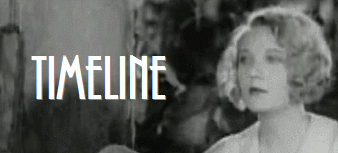


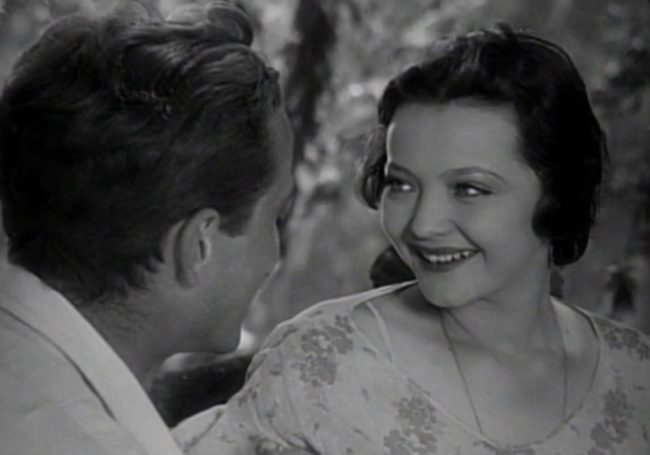
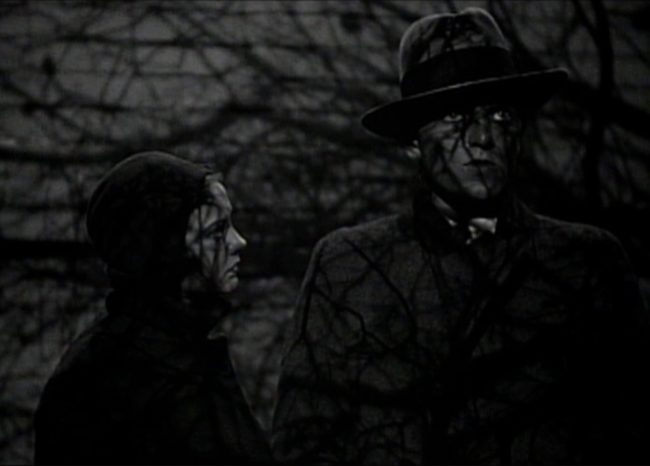
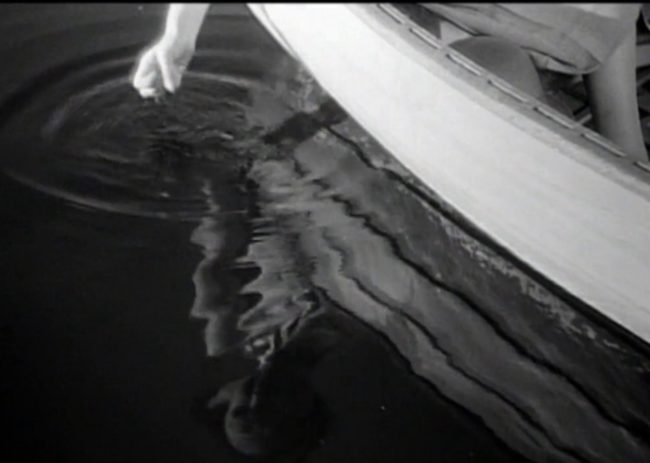
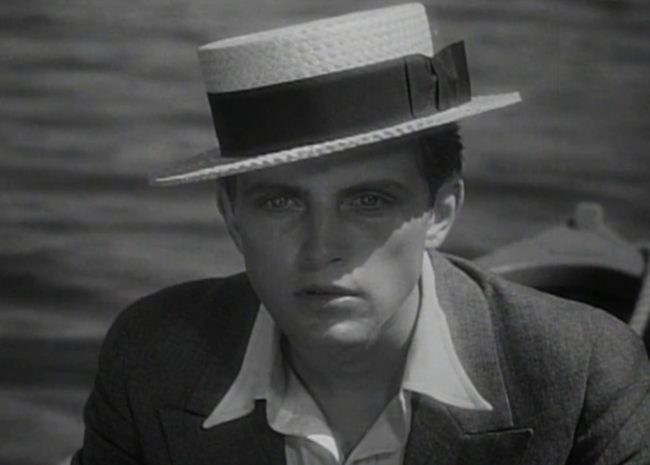





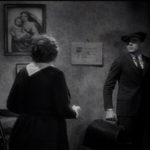

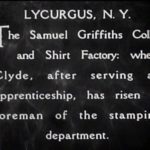

















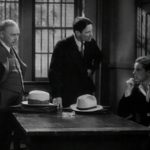




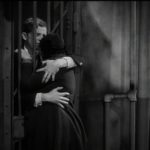
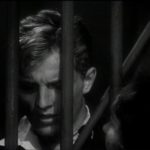




3 Comments
Elizabeth · May 26, 2017 at 3:55 am
Wagstaff: This is the first time I’ve been out in a canoe since I saw “The American Tragedy.”
thestoryenthusiast · May 26, 2017 at 3:10 pm
I’m slightly relieved to read your review as this was a movie I really wanted to see and somehow missed when it aired on TCM recently. I love Sylvia Sidney and am willing to slog through a less than stellar film just to see her performance.
brianpaige · June 30, 2017 at 11:56 am
Groucho and Thelma Todd had more chemistry there than Holmes and Sidney did here. Just finished watching this on the DVR and…yeah. Phillips Holmes was not a particularly good actor and the way Clyde is written here makes the part basically unplayable. It’s been forever since I have seen A Place in the Sun but I don’t recall Montgomery Clift just being the biggest douche ever in that.
I hate to say it but 17 years of shows like CSI render movies like this a moot point. I just found myself in disbelief that they would even charge him with much of anything given the lack of tangible evidence. When it was over I found myself wondering what the film was trying to say. Is Clyde a dirty scumbag who deserved his fate? Was he falsely accused?
Comments are closed.